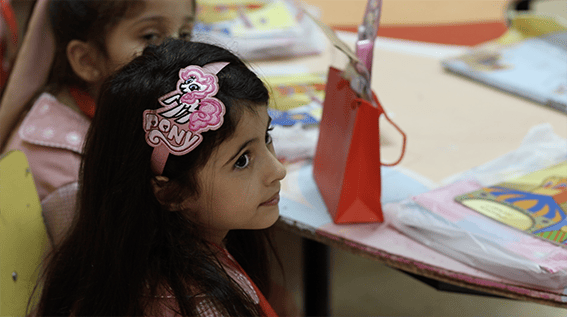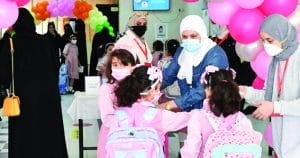How can parents prepare their children to face the challenges of the twenty-first century?
Some parents may not believe that they are responsible for the success of their children in their future working lives, but it is worth contemplating that these children will spend most of their time as adults at work.
In their book, 21st Century Skills: Learning for Life in Our Time, researchers Bernie Trilling and Charles Fadell predicted in 2009 that working life in the 21st century will be more fragmented because work will depend on short projects rather than stable, long-term employment. It will also become common for managers not to be in the same office with their employees, and may even work remotely from another country.
This means that the future work environment calls for the employee to have the ability to make decisions and take responsibility for them. Of course, the ability to make decisions is an innate need for everyone. Since childhood, we have the desire to decide on the simplest things, such as the game we want to play, when we go to school, we plan study times, or what kind of birthday gift we will give to our friend. Parents often discourage this skill in their children because they believe that adults should protect their children from the disappointments and consequences of wrong decisions.
Children may not have the knowledge or life experiences that adults have, and their choices may harm themselves and others. Nevertheless, their decision-making helps them greatly to understand the concept of consequences and their implications. If their decision is right, their self-esteem and self-belief increase and they learn basic decision-making skills in their personal lives. But if their choice is wrong, parents have the opportunity to teach them important skills such as dealing with difficult moments and disappointments.
Adults whose parents made all the decisions for them in their childhood are often passive and helpless, and they tend to avoid making decisions, preferring to receive instructions. In such cases, adults resort to blaming their advisors rather than taking responsibility for their choices if the advice given is bad. But if the solution offered is good, they will not be happy with it because the decision was not theirs. Accordingly, these people often lead negative and unsatisfying lives.
This does not mean that children have the ability to make decisions about everything; But sometimes, they can give them the opportunity to decide what the family will eat for lunch or how the family will spend their vacation. Good parents are aware of their children’s developmental status, encourage them to take responsibility and experience their independence in a safe environment, and make decisions in matters where the child has natural ownership. Parents should not abandon their responsibilities as adults in the family.
The role of parents should not be limited to providing solutions, but rather to include listening to their children’s basic needs and looking for alternative solutions.
We may ask ourselves what parents should do to prepare their children for the challenges of the 21st century. The answer is simple. Supporting children in decision-making and helping them take responsibility for their actions; It is among the primary tasks of parents in raising their children and preparing them for the twenty-first century. The role of parents should not be limited to providing solutions, but rather to include listening to their children’s basic needs and looking for alternative solutions.
So the next time your child tells you he’s bored, don’t suggest what he should do, but remind him of the many choices he has. Through that discussion, the child will be able to come up with many ideas and choices available, which will make it easier for him to choose. Avoiding offering solutions directly encourages children to organize their lives, which is essential in the 21st century.
Dr. Kay Marcos Talveo
Assistant Professor at the University of Helsinki – Finland




